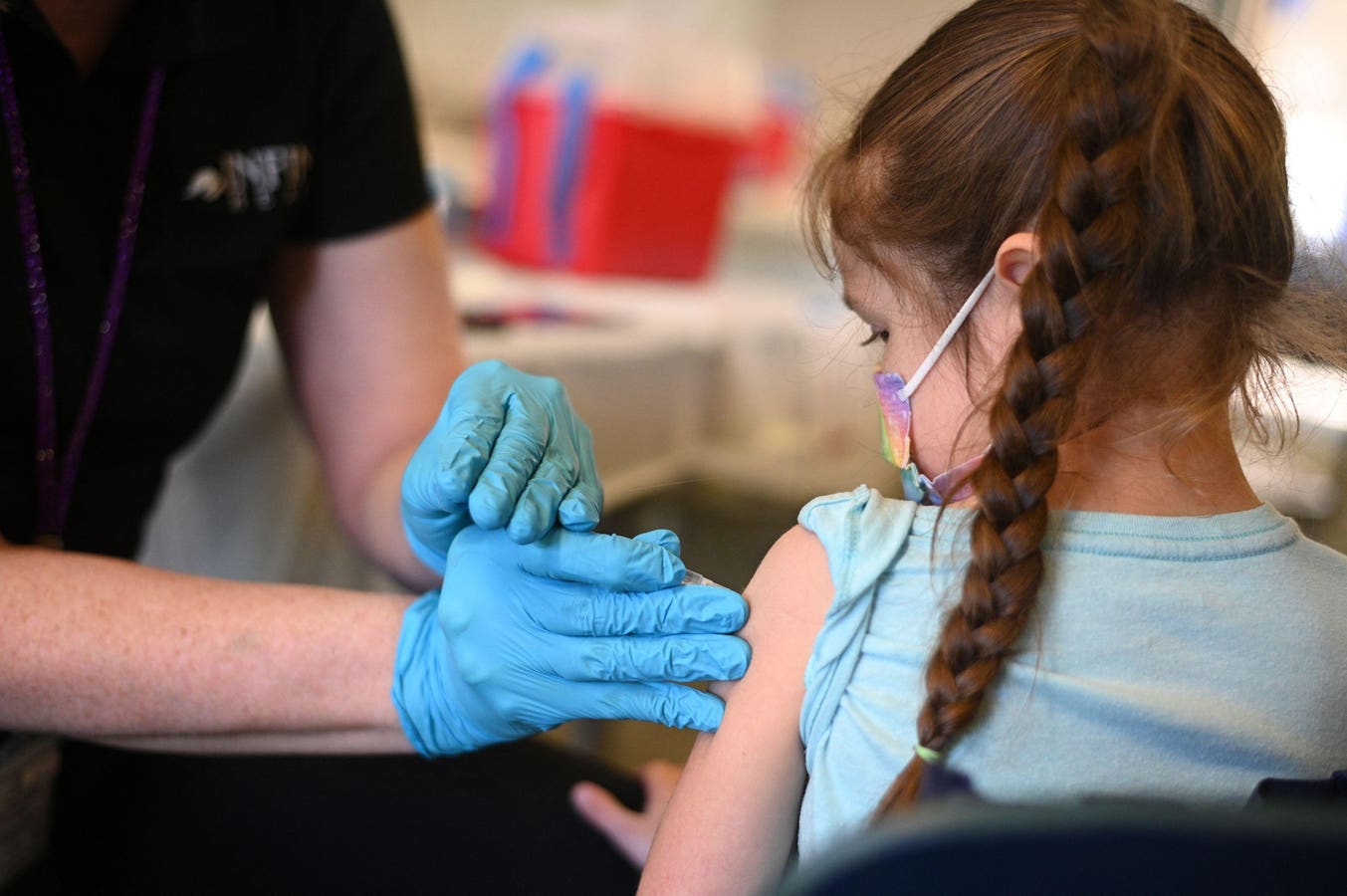Topline
More parents than ever have opted not to vaccinate their kids for tetanus, polio, measles and other diseases, the Centers for Disease Control and Prevention reported Thursday, increasing the risk of outbreaks of illnesses that were once considered almost eradicated in the United States.
Key Facts
Forty states saw a rise in the number of vaccine exemptions granted to families with school aged children, and 3% of kids entering kindergarten had been given an exemption for the 2022-23 school year—the highest rate ever reported in the United States.
Nationally, 93.1% of kindergarteners in the 2022-23 school year had received both doses of the measles vaccine and the polio vaccine; the VAR vaccine, also known as chickenpox vaccine, had been administered to 92.9% of kids.
The state with the highest reported exemption rate was Idaho, where 12.1% of kindergarten students had been granted an exemption, followed by Oregon at 8.2%, Utah at 8.1%, Arizona at 7.4% and Wisconsin at 7.2%.
While the CDC did not provide data on the exact reasons for the exemptions, it did say more than 90% of all exemptions are for nonmedical reasons and that almost all of the new exemptions are nonmedical, including for religious and philosophical reasons.
Key Background
The nation had achieved near 95% vaccination coverage—the metric by which herd immunity is generally considered achieved, according to the World Health Organization— for the MMR vaccine (measles, mumps, and rubella), DTaP (diphtheria, tetanus, and acellular pertussis), polio and the varicella vaccine until the coronavirus pandemic began. The vaccination rate declined one percentage point during the 2020-21 school year, the CDC reports, and fell again during the 2020–21 and 2021–22 school years.
Big Number
10. More than 5% of kindergarteners have exemptions for at least one vaccine in 10 states—Alaska, Arizona, Hawaii, Idaho, Michigan, Nevada, North Dakota, Oregon, Utah and Wisconsin.
Tangent
Experts have warned that skepticism about the new Covid vaccines have fueled a wider spread in anti-vaccine sentiment worldwide. A 2022 study by the Kaiser Family Foundation said that 28% of people surveyed think parents should be able to decide whether or not to vaccinate their school-age children, up from 16% who shared that view in 2019. Amid a measles outbreak in Ohio last year, a member of KFF’s Public Opinion and Survey Research team told NBC News that the debate over coronavirus vaccines could be blamed for the shift in attitude. A UNICEF report from April showed that the public perception of the importance of childhood vaccines declined in 52 out of 55 countries studied during the Covid pandemic. The report said there were 67 million children worldwide who missed out on at least one vaccination between 2019 and 2021, and that total vaccination rate decreased in 112 countries.
Crucial Quote
“It was the controversies and the climate of Covid vaccines and the vaccine mandates that had an impact,” Lunna Lopes of the Kaiser Family Foundation told NBC last year.
Read the full article here





